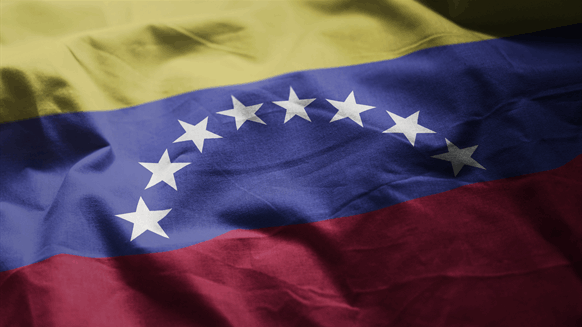
Venezuela plans to issue a license next month to Italy’s Eni SpA and Spain’s Repsol SA to export natural gas, said Pedro Tellechea, the nation’s oil minister and head of state-run Petroleos de Venezuela SA.
By Rigzone – Fabiola Zerpa
May 15, 2023
The country already signed an agreement with the European energy giants on May 5 that allows for the export of natural gas liquids—or condensates—to other markets. It was the first step toward enabling Venezuela to become a natural gas exporting country after over 100 years of focusing on oil.
“In the next few days we will finish negotiating the LNG export license,” Tellechea said in an interview Friday from PDVSA’s offices in Caracas. “Eni and Repsol are interested in growing in the area of ??gas in Venezuela. They had been waiting for seven years for the export permit for natural gas liquids, which we have just granted.”
The start date for exports will “depend on the speed of the investment they will disburse,” he said.
The two European companies want to resume their jointly run Cardon IV project “at its maximum capacity,” which is 1.3 billion cubic feet, Tellechea said. It currently pumps 580 million cubic feet of natural gas to meet Venezuela’s household and industrial demand.
Press contacts for Repsol and Eni didn’t respond to a request for comment outside of regular business hours.
Tellechea, a military officer and engineer, was appointed as minister of Venezuela’s oil industry in March, following a sweeping anti-corruption investigation into billions of missing revenue and faulty contracts that saw the ouster of his predecessor, Tareck El Aissami, a close ally of President Nicolas Maduro.
Previously, Tellechea led PDVSA’s petrochemical affiliate. He became the parent company’s president in early January, replacing former president Hugo Chavez’s cousin, Asdrubal Chavez.
Meanwhile, the oil ministry is also working closely with China National Petroleum Corp.’s officials on a renewed conduit that would cut out middlemen and allow them to ship crude directly, Tellechea said. A local press contact for CNPC didn’t respond to a request for comment outside of regular business hours.
CNPC, a key producer in Venezuela’s Orinoco belt, saw output from its Sinovensa joint venture nearly double to 90,000 barrels a day in early April, according to PDVSA data seen by Bloomberg.
Tellechea’s rise comes as Maduro desperately seeks to increase revenue from the nation’s oil, with presidential elections taking place next year and Maduro likely running for a third six-year term. Accounting for roughly 95% of the country’s overseas revenue, the oil industry has been victim to titanic mismanagement, plunging oil prices, corruption and painful sanctions that bar any US companies from doing business with PDVSA without a waiver.
US President Joe Biden has continued the policy, pressuring Venezuela’s political factions to negotiate and allowing a reprieve when shown signs of goodwill. Late last year, the US granted Chevron Corp. a license to resume oil production in Venezuela after a deal to work on a humanitarian spending plan was negotiated in Mexico.
Since then, oil exports have soared, reaching a 16-month high of 560,000 barrels a day in April. Still, Maduro has struggled to reach his 1 million barrel production goal, less than half of what Venezuela produced when he assumed power in 2013.
…
Read More: Rigzone – Minister Says Venezuela to Issue Eni, Repsol LNG Export License
…

